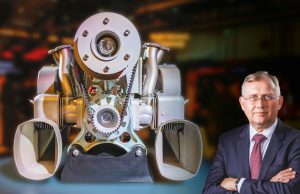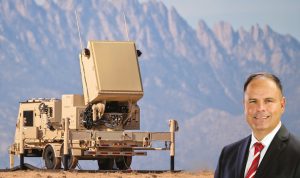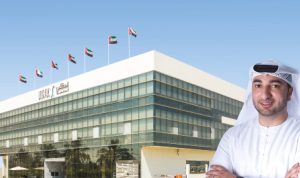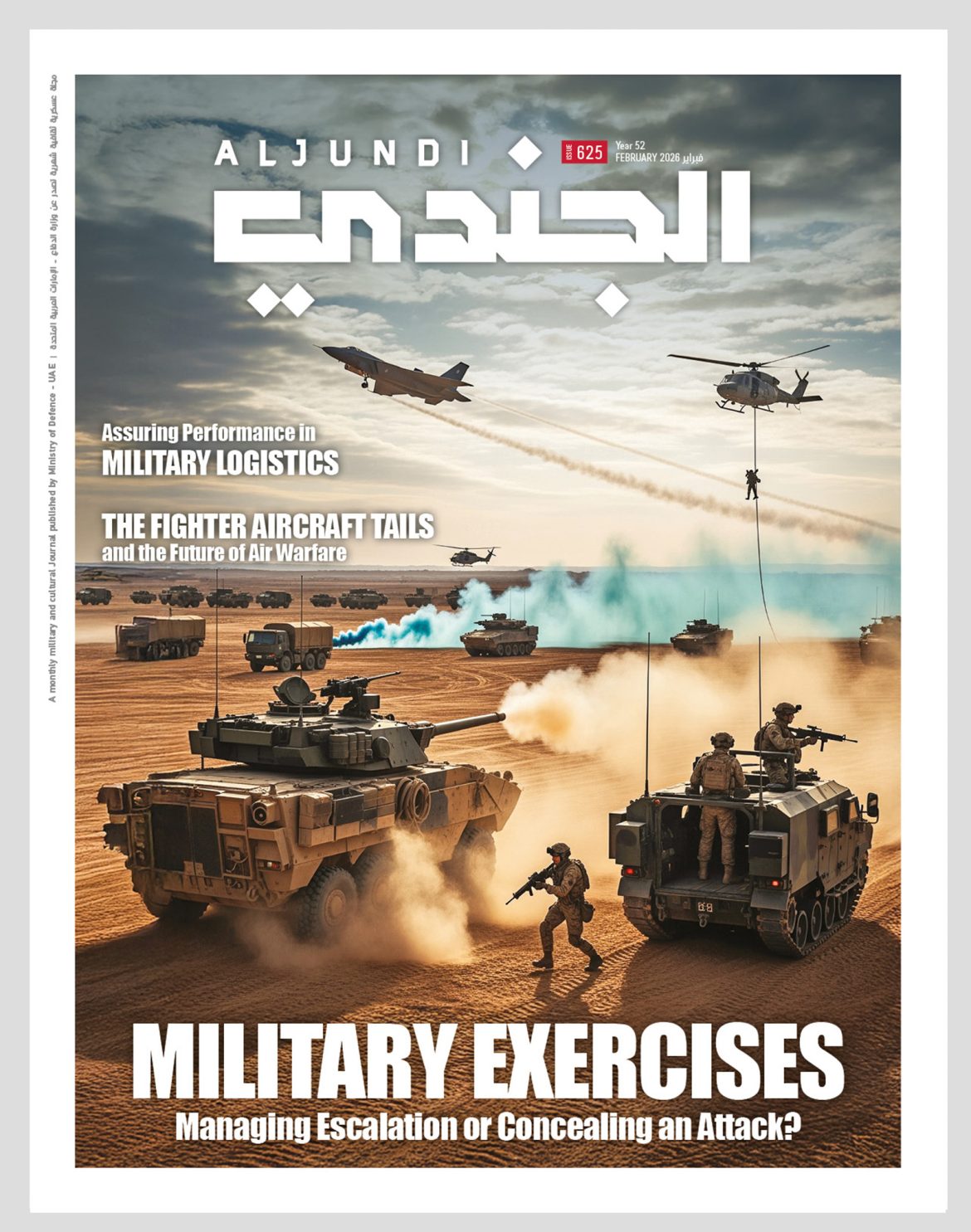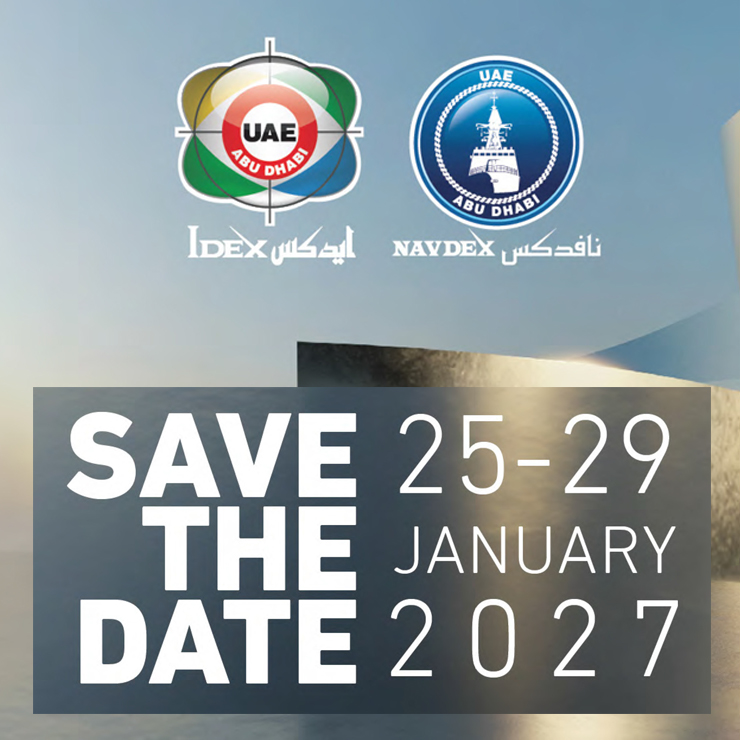As the pace of technological transformation accelerates, the UAE continues to invest in research, innovation, and entrepreneurship to cement its position as a leader in advanced technologies. At the heart of this national vision stands VentureOne, the venture builder and commercialisation arm of Abu Dhabi’s Advanced Technology Research Council (ATRC).
VentureOne plays a pivotal role in transforming cutting-edge research from the Technology Innovation Institute (TII) into real-world applications, spin-offs, and start-ups that support key sectors—foremost among them, defence and security.
In this context, Al Jundi Journal conducted an exclusive interview with Mr Reda Nidhakou, CEO of VentureOne, to discuss the company’s mission in driving the UAE’s innovation ecosystem, advancing national readiness in artificial intelligence (AI), autonomous robotics, cybersecurity, quantum technologies, and other future-focused fields and had the following dialogue with him:
Please give our readers a brief introduction to yourself and your route to becoming CEO of VentureOne.
I’m Reda Nidhakou, the CEO of VentureOne, the venture builder and commercialisation arm of Abu Dhabi’s Advanced Technology Research Council (ATRC). We take breakthrough technologies developed at (TII) and turn them into successful products and ventures for local and international markets.
I’ve spent the past decade in the UAE working in advanced technologies, corporate development, and innovation strategy. Before leading VentureOne, I served as Senior Vice President of Strategy and Portfolio Management at EDGE Group, where I helped establish the organisation and led more than 30 acquisitions. I was introduced to ATRC during its formation, acting as an advisor on technology incubation and strategic initiatives.
Since assuming leadership of VentureOne in early 2024, we’ve launched four deep-tech ventures in AI, autonomous robotics, post-quantum cybersecurity, and climate tech. Our focus is on building solutions that strengthen national resilience and advance Abu Dhabi’s role as a global innovation hub.
How does VentureOne bridge the gap between applied research at TII and national defence needs? What role does it play in strengthening the UAE’s resilience and innovation ecosystem?
VentureOne is part of ATRC’s purpose-built innovation ecosystem for advanced technology, which serves a variety of sectors. ASPIRE identifies real-world industry challenges, TII develops technology solutions, and VentureOne converts them into commercial ventures and solutions. This pipeline minimises fragmentation and guesswork and accelerates the journey from lab to market.
We don’t choose sectors—we choose problems to solve. VentureOne turns technologies into scalable products that meet defined needs such as safety, efficiency, and resilience, and that will play a role in advancing the UAE’s strategic priorities. Right now, our priority areas include AI, autonomous robotics, cybersecurity, quantum, security, and climate tech. We serve industries including defence, civil security, environment and climate, government services, and logistics and transportation, to name a few.
Each one of our technologies, including defence technologies, has been co-designed with anchor clients. In defence, we work closely with the EDGE Group and the MOD, for example.
This ensures our products address pressing operational challenges and have a tangible positive impact.
What technologies can we expect to see at the Dubai Airshow, and how do they help the defence industry?
At Dubai Airshow 2025, we’re displaying several key innovations that address challenges in the defence industry:
Our autonomous indoor drone uses advanced vision-based localisation and onboard AI to navigate autonomously in GPS-unavailable environments without external positioning infrastructure. It can, for example, conduct fully autonomous inspections of warehouses or industrial spaces.
We’re also showcasing our Electromagnetic Compatibility (EMC) testing services, which ensure electronic devices can operate without interference and support compliance with international standards.
Finally, we’re showcasing our Synthetic Aperture Radar (SAR)platform, which provides high-resolution, all-weather, day-and-night imaging of the Earth’s surface and subsurface, powering advanced surveillance.
SteerAI, our autonomous technology venture, also has a presence at the show. SteerAI and VentureOne are co-sponsoring one of the show’s startup challenges focused on autonomous robotics.
VentureOne’s ventures include SteerAI, AI71, and QuantumGate. Which technologies are – you prioritising now, and why are they important for defence?
Our technologies are designed to address pressing needs in multiple industries, including defence, by enhancing decision-making, efficiency, security, and safety.
AI , as always, remains a high priority, enabling force multiplication in several areas. Among many other things, AI powers analysis of vast amounts of data, enabling faster, data-driven decision-making, which is critical in modern warfare, where reaction time has a significant impact on outcomes and safety.
Autonomous robotics is also transforming defence. SteerAI’s autonomous driving system, CoreX, is designed to make current fleets autonomous and is engineered specifically for harsh off-road environments, including desert terrain and GPS-unavailable areas, while keeping troops out of harm’s way.
What is VentureOne’s approach to collaborating with the UAE Ministry of Defence, armed forces, and security entities?
ATRC engages with clients as technology partners throughout the entire innovation lifecycle. End users are involved from day one to ensure we understand their pain points, operational context, environmental conditions, and integration requirements.
We conduct extensive consultations and field testing, and because we own the technology, we can customise extensively. With SteerAI, for example, we can integrate CoreX with any number of defence platforms, from light tactical vehicles to armoured trucks.
Our partnership with Milrem Robotics exemplifies this. We worked closely with them to understand their specific logistics challenges, including navigating challenging terrain, and surveilling and operating in remote, GPS-unavailable areas. This deep operational understanding informs every decision we make. When we agreed to transform 20 of their unmanned ground vehicles (UGVs), the systems were operationally validated for their exact use cases.
Which emerging technologies will define the next decade for defence? How is VentureOne preparing?
Cybersecurity will be foundational. Advancements in AI and quantum computing will demand a full overhaul of current security measures, and defence will likely be among the first to adopt post-quantum solutions.
AI will continue to shape nearly everything we do. The focus is already shifting from the power of AI models to how they should be used to add value. The coming years will emphasise integration even more, with a focus on using AI to expand human capability.
Autonomous robotics will also play a key role. As workforces face pressure to do more with less, repetitive, low-skilled labour will increasingly be handled by AI as well as robots, creating the need to upskill the workforce to facilitate oversight.
ATRC has been preparing for this shift: QuantumGate, VentureOne’s post-quantum cybersecurity venture, offers cybersecurity tools built to withstand quantum threats. SteerAI, our autonomy venture, continues expanding its product line. We are working on some cutting-edge projects in robotics that will be announced in due course.
Could you share a few lessons learned from your ventures so far? What succeeded? What was challenging? How do you measure impact, whether in operational effectiveness, cost savings, or strategic value?
Building four deep-tech ventures in 18 months has been challenging but extremely rewarding.
What succeeded: ATRC’s ecosystem, which focuses on client needs from beginning to end, was and is critical to our success. ASPIRE collaborates with government entities, industry leaders, and end users to pinpoint industry challenges. This translates into applied research at the (TII), and VentureOne takes the most mature technologies with the greatest market demand and turns them into scalable ventures and solutions. This demand-led, data-driven model helps ensure every venture and solution address a defined need, dramatically increasing our chances of delivering measurable, real-world impact.
We also prioritised hiring world-class, ambitious, mission-oriented talent. ATRC offers the ability to build something valuable from start to finish. Our team members, many of whom have come from organisations such as Google DeepMind, Meta, Amazon, and McKinsey, work on high-impact challenges with clear industry applications, getting to see their innovations put to work quickly. This is deeply motivating for top talent. They want to be part of what we are doing.
What was challenging: The biggest hurdle in launching any successful ventures is the “last mile” between technical readiness and market deployment. Many prototypes fail because they aren’t designed for integration, customisation, or compliance. VentureOne places advisory and engineering teams alongside clients to co-develop scalable, market-ready, compliant solutions. Combined with the ATRC ecosystem’s coordinated support, this approach ensures innovation can grow into deployable, high-impact ventures and solutions.
How we measure impact: We measure impact in several ways, including improved operational effectiveness and efficiency, reduced costs, and improved safety and resilience. We also measure impact through strategic alignment with the UAE’s priorities: Have we built the UAE’s sovereign tech capabilities and local capacity, reducing dependence on foreign technology?
Of course, we also measure success through commercial interest. We’re witnessing great traction for our solutions, signalling that VentureOne is playing—and will continue to play—an important role in shaping the UAE’s position as a global hub for deep tech. Our aim is to keep the momentum and to create a solid ecosystem of successful home-grown tech ventures.

» Interviewed by aljundi




